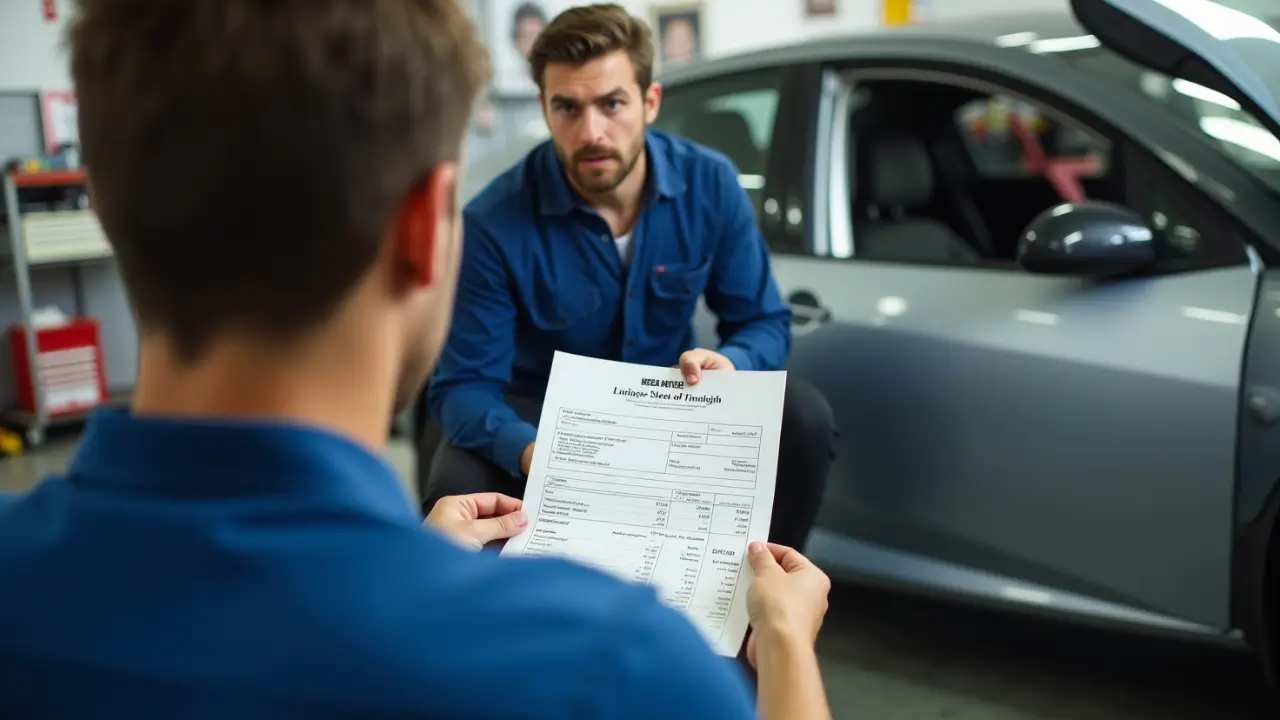Learn the most common car repair scams and how to avoid them with smart tips to protect your money and keep your vehicle in top shape.
Introduction
Auto repairs may be costly and stressful, and regrettably, some professionals prey on clients who are ignorant of the requirements of their car. You can save money and irritation by being aware of frequent auto repair scams and understanding how to avoid them. The most prevalent scams are outlined below, along with tips on how to avoid being a victim.
Unnecessary Repairs
One of the most common scams involves a mechanic recommending repairs. That could include replacing components such as brake pads or proposing an oil change when your vehicle does not require one. Mechanics may recommend these needless repairs because they believe clients don’t know better.
How to Avoid It:
- Always obtain a second opinion from a mechanic before settling on repairs.
- Know your vehicle’s schedule. Familiarize yourself with your car’s maintenance requirements using the manual or built-in service reminders.
- Educate yourself. Learn car maintenance to avoid being duped.
Overcharging
Another prevalent scam is overcharging, in which mechanics exaggerate the price of work or parts. For instance, they can charge you more for labor than the time it takes to finish the task, or they might charge you for expensive parts when less expensive options would work just as well.
How to Avoid It:
- Request an itemized estimate: Before accepting any task, always request a thorough breakdown of the parts and labor expenses.
- Research parts costs: Look up the prices of parts online or call around various stores to compare.
- Request aftermarket parts: Consider asking for aftermarket or refurbished parts, as these are typically less expensive than new ones.
Phantom Repairs
It typically happens when customers do not inspect their vehicle after the repair.
How to Avoid It:
- Inspect the work: After a repair, inspect the new parts or request to view the original components.
- Choose reputable shops: Collaborate with reputable repair businesses that offer openness regarding the work done.
Fake Fluid Flushes
When these are not required, mechanics occasionally suggest fluid flushes for the coolant, brake, or gearbox fluids. Even when your automobile doesn’t need them, dishonest mechanics may push these expensive flushes.
How to Avoid It:
- Know the recommendations: Check your car owner’s manual for the recommended intervals for fluid changes and flushes.
- Ask for details: Ask the mechanic why a flush is necessary.
- Audi GT50 Concept: A Loud Reminder of Why Car Enthusiasts Fell in Love With Audi
- Nearly 30% of UK Drivers Believe Car Tax Should Be Based on Mileage — Survey
- Why Planes and Boats Escaped the Luxury Tax But Cars Didn’t
- Australia’s Headlight Confusion: Authorities Warn Drivers After Viral $250 Headlight Rule Goes Wild Online
- 2025 Hyundai Venue Facelift Launched in India – Full Details, Variants, and Price
Tire Scams
Dishonest mechanics may inform you that your tires are worn out and need replacement even though they still have plenty of treads. Some businesses even mark tires with chalk or use pressure to make them appear worn.
How to Avoid It:
- Inspect your tires: Learn how to check the tread depth yourself. If the tread is less than 2/32 of an inch, it’s time to replace the tires.
- Get a second opinion: If advised to replace your tires, consult another tire shop to confirm the diagnosis.
Upcharging for Simple Repairs
To bill you for more work, mechanics could inflate the difficulty of a straightforward repair. For example, they may charge for an hour of labor, claiming it is a complex process.
How to Avoid It:
- Learn car maintenance: Understanding basic repairs might help you avoid paying for something that should be cheap, even if you’re not a mechanic.
- Get a breakdown of labor charges: If a repair seems too expensive, ask for an explanation of how much time the job took.
Conclusion
Scams involving auto repairs are annoying, but we can prevent them with diligence and awareness. Always seek a second opinion, get thorough estimates, and educate yourself to maintain your vehicle. You can avoid overcharging by researching labor and part costs.
